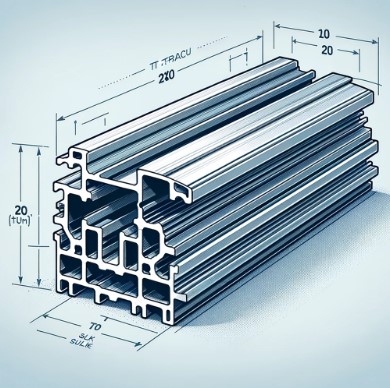Selecting the appropriate thickness for aluminum alloy glass door frames is more than a matter of aesthetics; it’s about ensuring durability, safety, and compliance with building standards. The thickness of the frame directly impacts the strength and stability of doors and windows, particularly in environments subject to severe weather conditions, such as typhoons.
Understanding Thickness Standards
The standard thickness for aluminum alloy doors and windows is set with safety and performance in mind. Generally, the thickness should exceed 1.2 mm for both doors and windows. Specifically, windows require a thickness of at least 1.4 mm, while doors demand a robust 2.0 mm to maintain structural integrity. Opting for a non-standard thickness, such as 1.0 mm, may compromise wind pressure resistance, posing significant safety hazards in adverse weather conditions.
Specific Requirements for Frame Thickness
Aluminum alloy doors and windows come in various frame thickness specifications, including 1.2mm, 1.4mm, 1.6mm, 1.8mm, and 2.0mm. The choice often depends on the size of the door or window and the required load-bearing capacity. For instance, large doors and windows that face higher loads and stability demands typically utilize thicknesses of 1.8mm or 2.0mm.
Material and Wall Thickness Considerations
When choosing the thickness of aluminum alloy glass door frames, it’s crucial to consider the material and wall thickness alongside the frame thickness. The wall thickness of the base material plays a pivotal role in ensuring the overall quality and performance. For doors, the main profile’s base material should have a wall thickness of no less than 2.2 mm, inner doors should not be less than 2.0 mm, and exterior windows should be at least 1.8 mm.
Choosing Thickness Based on Application
The appropriate thickness for an aluminum alloy glass door frame varies based on its application, size, and the specific requirements of the environment. In high-rise buildings, where safety performance is paramount, thicker door and window frames are recommended. Conversely, for ordinary residences, a frame thickness of 1.4mm is usually sufficient to meet general needs without compromising safety or quality.
Case Studies and Examples
Across various construction projects, the implementation of aluminum alloy glass door frames with optimal thickness has demonstrated significant benefits. Whether in high-rise buildings subjected to high wind pressures or residential areas requiring aesthetic appeal and functionality, choosing the right thickness has proven crucial for durability and safety.
Conclusion
The selection of the right thickness for aluminum alloy glass door frames is a critical decision that influences the safety, durability, and performance of doors and windows. By understanding thickness standards, considering the material and wall thickness, and choosing based on application and environmental requirements, builders and homeowners can ensure that their construction projects meet the highest standards of quality and safety. Always prioritize comprehensive consideration over convenience or cost-saving measures when it comes to the structural integrity of buildings.
